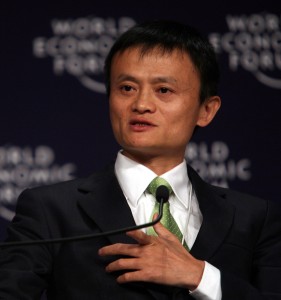By Alex Plough March 6, 2015
A view of downtown San Jose, the self-proclaimed “Capital of Silicon Valley.” ©SCUMATT / Wikimedia Commons
Silicon Valley Culture on Trial
The male-dominated work culture of Silicon Valley is on trial this week in a gender discrimination lawsuit filed against the leading San Fransisco venture capital firm, Kleiner Perkins.
Former employee Ellen Pao, who now works as interim CEO of the news website Reddit, accused her old bosses of sidelining her career after she complained about sexual harassment at the firm.
Pao’s lawyer argues that Kleiner partner Ajit Nazre retaliated against Pao after she ended an affair with him in 2006. The VC firm instead claims that Pao was not considered for an investment role at the firm as at no point was she seen up to the task.
Each day of the closely-watched proceedings is guaranteed to bring new, salacious, revelations about the inner workings of Kleiner Perkins and a wider culture of gender discrimination in Silicon Valley companies.
We’ve already been treated to details of office affairs and unwanted sexual advances by Nazre, such as when he turned up employee’s hotel room wearing nothing but a bathrobe. In another incident, partner Randy Komisar gave Pao a book of sexual poetry and nude sketches that she saw as inappropriate.
The case has sparked renewed accusations of sexism within the technology industry. In January, Newsweek published a controversial article, “What Silicon Valley Thinks Of Women”, which detailed a year’s worth of accusations of gender-based misconduct in tech. The piece is required reading for anyone who thinks Silicon Valley doesn’t have a gender problem.
Citigroup Sells Subprime Biz

Citigroup © Spencer E Holtaway/ Flickr
Once the largest bank in the world, Citigroup announced it was further slimming down operations with the sale of its subprime consumer loan business to the lender Springleaf Holdings for roughly $4.25 billion in cash.
The price tag shows how banking has changed since the financial crisis. In 2009, Citigroup was asking for just $1 billion for the consumer finance unit OneMain Financial and still lacked a buyer.
At the time, its CEOs were watching the banking group’s share price nosedive from $556 on January 1st of 2007 to under $1 just two years later. To reassure investors and regulators, it spun off $700 billion of poor-performing assets such as its subprime loans into a ‘bad bank,’ which it then tried to sell.
Fast forward to 2015, and subprime lending, giving loans to less-creditworthy borrowers, is once again big business.
As large commercial banks like Citigroup concentrate on the wealthier end of the market, millions of American’s who struggle to qualify for loans have turned to non-bank financial institutions for their mortgages, car loans, and small-business financing.
Some worry that this trend is sowing the seeds of another financial crisis. Quartz found that about half of the rise in US consumer spending for the last quarter of 2014 was generated by vehicle purchases, while spending on big-ticket items like cars is, in turn, increasingly funded by loans to less credit-worthy borrowers.
Meanwhile subprime auto loans that are packaged up and sold to investors, or securitized, are the fastest growing segment of the asset-backed securities market.

Jack Ma, founder and executive chairman of Alibaba, in 2008. ©World Economic Forum/ Wikimedia Commons
Alibaba’s Shady Business
The shares of Chinese online marketplace Alibaba are at an all-time low since its initial public offering in September, as investors respond to damaging recent financial disclosures.
Financial Times journalist Patti Waldmeir reported on Monday that the Taiwanese government ordered the company to withdraw from the country, accusing it of hiding its status as a Chinese-mainland registered entity.
Taiwan’s regulators discovered the lack of proper accreditation in documents Alibaba supplied to investors during its US listing. At that time, Taiwan barred Chinese companies from entering the island due to political tension between Beijing and Taipei.
In the US, the Chinese firm is facing unwanted attention from the US trade office over the widespread sale of counterfeit and pirated goods on its consumer-to-consumer shopping website Taobao.com.
The Wall Street Journal this week gave readers a detailed look inside Alibaba’s online marketplaces, revealing how merchants pay people to pretend to be customers.
After talking to over two dozen retailers who use the site, journalists found widespread use of these fake orders, known as “brushing” in China, to increase sales volumes and boost their standing in the cutthroat marketplace.
In February, two US law firms filed securities class action complaints against the company following a devastating report by China’s State Administration for Industry and Commerce that accused Alibaba of a range of dubious business practices.
The company called the report biased, and insists it takes adequate measures to stamp out fraud and the sale of counterfeit goods. The report was later removed from the Chinese state agency’s website.

General Electric logo, Schenectady, New York, 2005.
©Matthew Bradley/ Flickr
Corporate Tax Avoiders
Bloomberg reported that tech companies were the biggest tax avoiders in 2014 after eight companies increased their offshore profits by a combined $69 billion. In total, US companies have stockpiled over $2 trillion abroad. Leading the way for the fifth straight year is General Electric, with around $119 billion in overseas profits.
Scroll down the article to find a data visualization that puts these figures in perspective. If just seven companies brought this money back to the country and it was taxed at the current rate, the amount raised would be enough to fund six U.S. government departments for a year.
The typical excuse for these overseas cash hoards is that the U.S. corporate tax rate of 35% is too high. But in 2013, the New York Times mined SEC data to find large disparities in the effective tax rate for US companies over the preceding five years. Their data interactive breaks down how much tax the biggest firms paid from 2007 to 2012, showing clear patterns by industry as well as the firms like Amazon.com which get away with paying far less than headline tax rate.
This entry was posted on Friday, March 6th, 2015 at 4:13 pm. It is filed under Week in Review and tagged with Alibaba, Citigroup subprime business, corporate tax avoiders, gender discrimination, OneMain Financial, Silicon Valley, Taobao.com. You can follow any responses to this entry through the RSS 2.0 feed.
Comments are closed.
